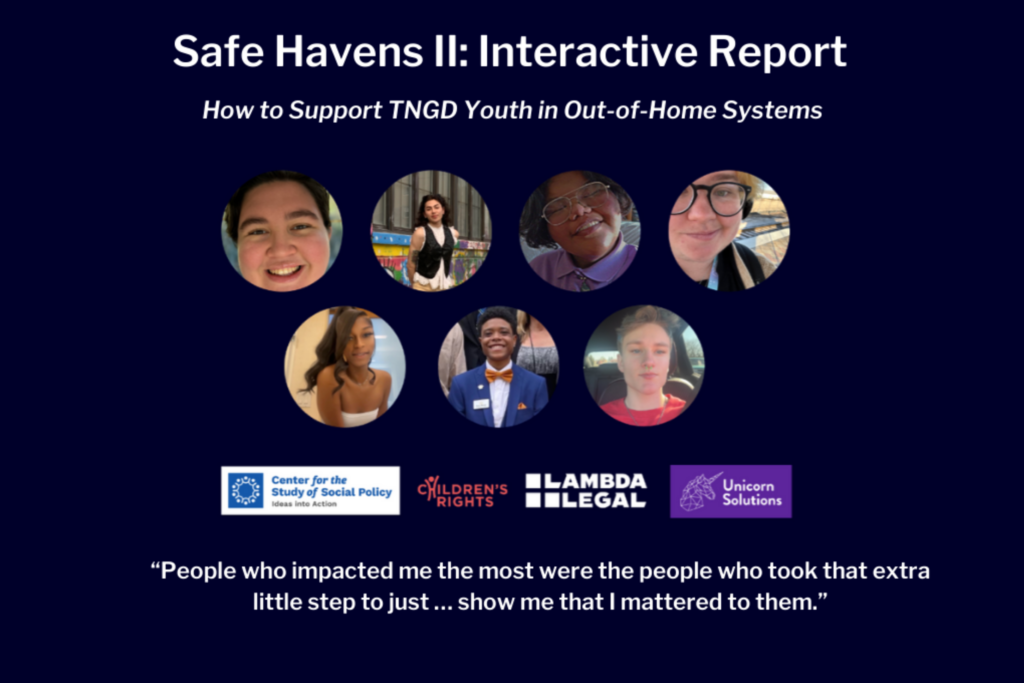As a nation, we owe all youth, including transgender, nonbinary, and gender diverse (TNGD) youth, the opportunity to thrive and be themselves in homes, schools, and communities that support their healthy development. We must implement policies that reflect this commitment to youth and ensure it is not conditional on race, gender identity, sexual orientation, religion, immigration status, or any other element of identity.
Safe Havens II: We Must Affirm and Protect Trans, Nonbinary, and Gender Diverse Youth in Out-of-Home Systems, developed by CSSP, Children’s Rights, Lambda Legal, and Unicorn Solutions, includes an update on important law and policy protections and attacks on LGBQ+ and TNGD young people along with recommendations for system improvement from young advocates with lived experience in out-of-home systems. Specifically, the 2024 report highlights the federal and state laws and policies in place to support TNGD and LGBQ+ youth in out-of-home systems, but also notes the dearth of programs to safely prevent system involvement and promote youth acceptance by their families and communities.
“We have a responsibility to support the healthy identity development of all young people and this importantly includes transgender, nonbinary, and gender diverse youth,” said Megan Martin, Executive Vice President at the Center for the Study of Social Policy. “However, rather than being supportive, public systems are failing them and their families, and causing significant harm by denying their identities and access to supportive and affirming resources and placements. This report makes clear that young people who are forced into out-of-home care through child welfare and juvenile legal systems and facing homelessness encounter incredible barriers to their well-being and are actively harmed by existing policy and regulation. We call on policymakers and system administrators to take immediate action to promote the dignity of TNGD and LGBTQ+ youth by ensuring their safety and promoting their health and well-being in their homes and communities. Young people are clearly communicating what they need and we have a responsibility to listen and be accountable to them.”
Safe Havens II calls for a robust response from policymakers and urges the implementation of comprehensive strategies to support young people in their communities, prevent their involvement in the homeless, juvenile legal, and child welfare systems, and protect those already within systems from harm. Read the full report here.
